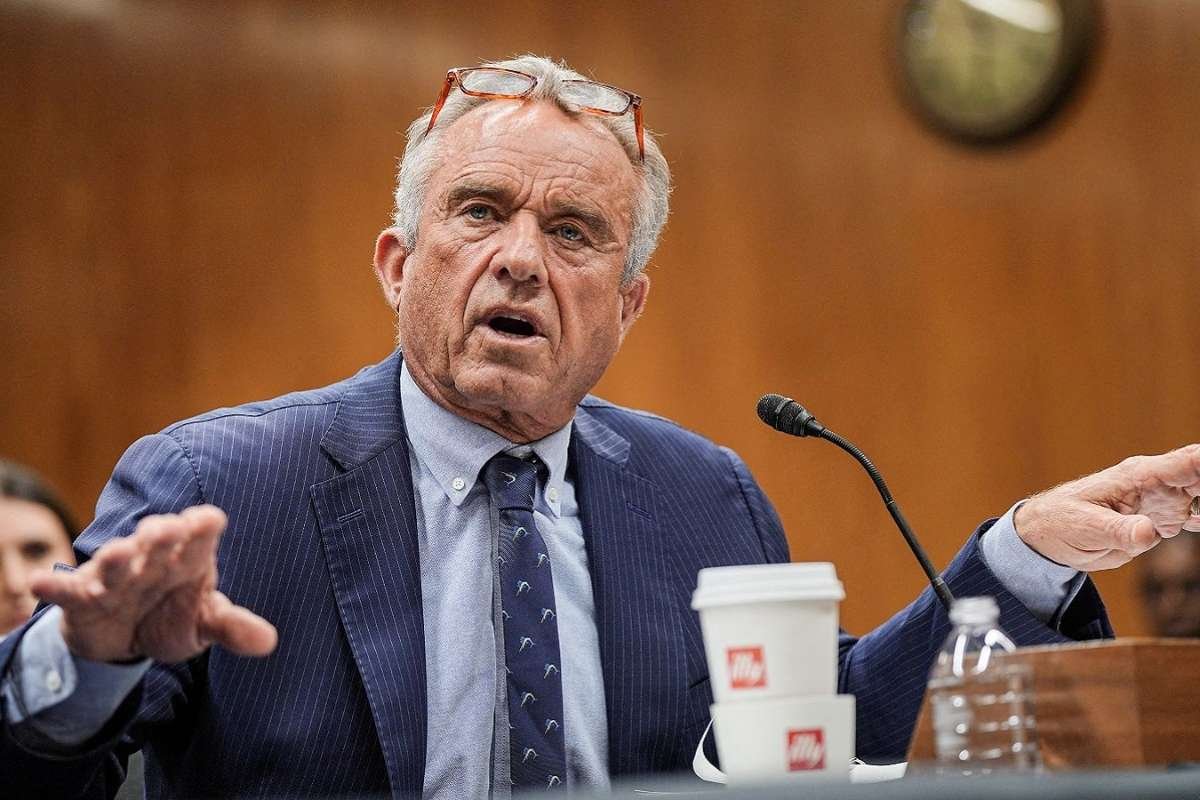The U.S. Health Secretary and head of the RFK Jr. vaccine panel, Robert F. Kennedy Jr., recently found himself the unlikely subject of internet satire after The Hard Times, a well-known parody news outlet, published a fictional piece claiming he planned to “live forever” by inserting silica gel packets into his body. In the article, Kennedy is humorously quoted saying, “I stuffed silica gel packets in all my holes and now I can never die,” sparking both laughter and confusion online.
While satirical, the piece gained significant traction on social media, blurring the lines between absurdity and public perception. Medical experts, such as a fictional Dr. Gabriel Trammell, ridiculed the spoof, warning that real medical misinformation, satirical or not, often has unexpected consequences in the age of viral content.
Though fictional, the story underscores the challenges public figures face when satire becomes entangled with genuine debate, particularly on matters as sensitive as public health.
Real-World Shake-Up – RFK Jr. Restructures Federal Vaccine Advisory Panel
Beyond the headlines and satire, Kennedy’s real-world policy decisions have prompted serious concerns. In June 2025, the RFK Jr. vaccine panel overhaul began when he removed all 17 members of the CDC’s Advisory Committee on Immunization Practices (ACIP) and installed eight new members, many of whom share his long-standing skepticism of mainstream vaccine protocols.
Among the new appointees is Vicky Pebsworth, a registered nurse and researcher who has publicly linked her son’s autism to vaccines, a claim discredited by extensive scientific studies. Others, like Dr. Robert Malone and Dr. Martin Kulldorff, have also drawn criticism for promoting unverified claims and dissenting from the global vaccine consensus.
The newly configured RFK Jr. vaccine panel has already recommended limiting thimerosal-containing flu vaccines, a move many scientists say lacks evidentiary support. Pebsworth abstained from the vote, arguing that thimerosal and influenza should be considered separately. Critics warn that these decisions could undermine trust in the CDC’s guidelines, especially when driven by ideology over evidence.
Ethics, Expertise, and Public Backlash
The abrupt restructuring of the ACIP has led to growing concern within the medical and scientific community. Critics argue that the appointments were made without sufficient transparency, with some appointees lacking relevant immunization expertise. At least one individual withdrew following conflict-of-interest concerns.
Health experts and ethics advocates warn that these developments could erode public trust in vaccines, especially if future recommendations reflect personal ideologies rather than scientific consensus. The RFK Jr. vaccine panel now plays a critical role in shaping U.S. immunization schedules, insurance policies, and school requirements, making its credibility vital for national health outcomes.
As satire like the silica gel story grabs headlines and RFK Jr.’s real policy decisions fuel public debate, the U.S. faces a precarious moment in balancing health policy, science, and political ideology. With misinformation both intentional and accidental on the rise, experts say maintaining rigorous scientific standards is more important than ever.
Visit more of our news! The Lifesciences Magazine.
Sources:
https://www.foxnews.com/video/6375284613112
https://www.theguardian.com/us-news/2025/jul/05/vicky-pebsworth-vaccine-experts-rfk-jr







